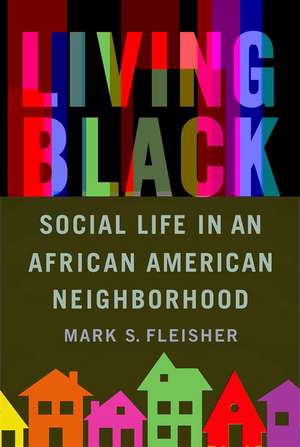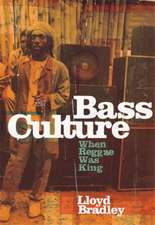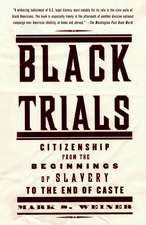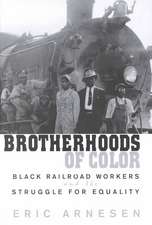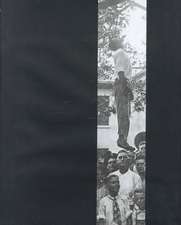Living Black: Social Life in an African American Neighborhood
Autor Mark S. Fleisheren Limba Engleză Paperback – 23 noi 2015
Living Black breaks the stereotype of poor African American neighborhoods as dysfunctional ghettos of helpless and hopeless people. Despite real and enduring poverty, the community described here—the historic North End of Champaign, Illinois—has a vibrant social life and strong ties among generations. But it operates on its own nonjudgmental terms—teen moms aren’t derided, school dropouts aren’t ridiculed, and parolees and ex-cons aren’t scorned.
Mark S. Fleisher offers a window into daily life in this neighborhood, particularly through the stories of Mo and Memphis Washington, who fight to sustain a stable home for their children, and of Burpee, a local man who has returned to the North End to rebuild his life after years of crime and punishment in Chicago.
“Outstanding” books for public & secondary school libraries from university presses, American Library Association
Mark S. Fleisher offers a window into daily life in this neighborhood, particularly through the stories of Mo and Memphis Washington, who fight to sustain a stable home for their children, and of Burpee, a local man who has returned to the North End to rebuild his life after years of crime and punishment in Chicago.
“Outstanding” books for public & secondary school libraries from university presses, American Library Association
Preț: 186.81 lei
Nou
Puncte Express: 280
Preț estimativ în valută:
35.75€ • 38.82$ • 30.03£
35.75€ • 38.82$ • 30.03£
Carte tipărită la comandă
Livrare economică 23 aprilie-07 mai
Preluare comenzi: 021 569.72.76
Specificații
ISBN-13: 9780299305345
ISBN-10: 0299305341
Pagini: 176
Dimensiuni: 152 x 229 x 15 mm
Greutate: 0.24 kg
Ediția:1
Editura: University of Wisconsin Press
Colecția University of Wisconsin Press
ISBN-10: 0299305341
Pagini: 176
Dimensiuni: 152 x 229 x 15 mm
Greutate: 0.24 kg
Ediția:1
Editura: University of Wisconsin Press
Colecția University of Wisconsin Press
Recenzii
“Goes against the common notion that American ghettos are broken places. . . . Brief, accessible . . . suitable for a general readership.”—Kirkus Reviews
“A very engaging account of fieldwork among gang members, their families, and their community, in line with ethnographies like Tally’s Corner, Code of the Street, or Gang Leader for a Day.”—Jeffrey Ian Ross, coauthor of Beyond Bars
“A human story, not necessarily an account of white vs black or haves vs have nots. . . . Living Black should be required reading for anyone who could benefit from a look outside their own world into the world of others. Which is most of us.”—Chicago Book Review
“An accessible introduction to ethnographic fieldwork, a window into a deeply textured community . . . and an illustration of the myriad ways that poverty and racism have cascading implications for communities, families, and individuals.”—Michigan Historical Review
Notă biografică
Mark S. Fleisher is a research professor in the Jack, Joseph, and Morton Mandel School of Applied Social Sciences at Case Western Reserve University. He formerly worked at the Federal Bureau of Prisons and at Illinois State University. He is the author of Beggars and Thieves, Dead End Kids, and Warehousing Violence.
Cuprins
Acknowledgments
Prologue
1 The Ethnographer and the Ex-Convict
2 Culture and Social Life
3 Lively Streets
4 Everyday Life
5 New Neighbors
6 Dreams and Realities
7 Rebirth Days
8 They Don’t Need a Savior
Epilogue
Notes
References
Index
Prologue
1 The Ethnographer and the Ex-Convict
2 Culture and Social Life
3 Lively Streets
4 Everyday Life
5 New Neighbors
6 Dreams and Realities
7 Rebirth Days
8 They Don’t Need a Savior
Epilogue
Notes
References
Index
Descriere
Living Black breaks the stereotype of poor African American neighborhoods as dysfunctional ghettos of helpless and hopeless people. Despite real and enduring poverty, the community described here—the historic North End of Champaign, Illinois—has a vibrant social life and strong ties among generations. But it operates on its own non-judgmental terms—teen moms aren’t derided, school dropouts aren’t ridiculed, and parolees and ex-cons aren’t scorned.
